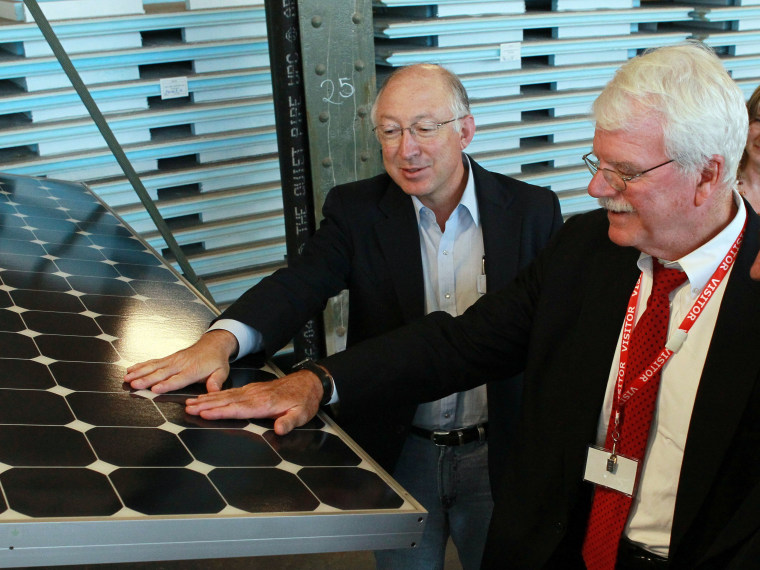The Intergovernmental Panel on Climate Change recently did its level best to alert the public to a genuine global crisis: climate change is accelerating and the need for action is critical. The IPCC's report highlighted some signs of preliminary progress, however, including sharp reductions in the costs of renewable energy.
A
New York Times editorial this morning talked about a "plausible pathway" to success through binding emission reduction targets and a vast increase in the use of renewable sources like wind and solar.
As we
talked about last week, it's against this backdrop that Oklahoma policymakers approved a bill, endorsed by major electric utilities, to make renewable energy more expensive, on purpose. Consumers who install solar panels or wind turbines are now slated to pay extra changes.
The
L.A. Times reports that Americans can expect to see a lot more of this: "Solar, once almost universally regarded as a virtuous, if perhaps over-hyped, energy alternative, has now grown big enough to have enemies."
The Koch brothers, anti-tax activist Grover Norquist and some of the nation's largest power companies have backed efforts in recent months to roll back state policies that favor green energy. The conservative luminaries have pushed campaigns in Kansas, North Carolina and Arizona, with the battle rapidly spreading to other states. Alarmed environmentalists and their allies in the solar industry have fought back, battling the other side to a draw so far. Both sides say the fight is growing more intense as new states, including Ohio, South Carolina and Washington, enter the fray.
This is arguably evidence of an energy breakthrough: up until fairly recently the right never really cared enough about solar power to move aggressively against it.
Of course, the dispute has nuances and talking points that conservative policymakers can embrace to justify anti-solar policies.
At the nub of the dispute are two policies found in dozens of states. One requires utilities to get a certain share of power from renewable sources. The other, known as net metering, guarantees homeowners or businesses with solar panels on their roofs the right to sell any excess electricity back into the power grid at attractive rates. Net metering forms the linchpin of the solar-energy business model. Without it, firms say, solar power would be prohibitively expensive. The power industry argues that net metering provides an unfair advantage to solar consumers, who don't pay to maintain the power grid although they draw money from it and rely on it for backup on cloudy days. The more people produce their own electricity through solar, the fewer are left being billed for the transmission lines, substations and computer systems that make up the grid, industry officials say.
That's the argument that worked in Oklahoma, which is why consumers who embrace renewables are facing new charges.
And there's no reason to think Oklahoma will be the last -- the American Legislative Exchange Council has already drafted model legislation on the issue, which is being touted by the Koch-financed Americans for Prosperity. Indeed, AFP has been especially aggressive in Kansas, hoping to eliminate the state policy that aims for 20% reliance on renewable energy sources.
To that end, AFP has begun equating green energy mandates with -- what else? -- the Affordable Care Act.
As for whether industry claims have merit, the L.A. Times report also reported, "The arguments over who benefits from net metering, meanwhile, are hotly disputed. Some studies, including one published recently by regulators in Vermont, conclude that solar customers bring enough benefits to a regional power supply to fully defray the cost of the incentive."
